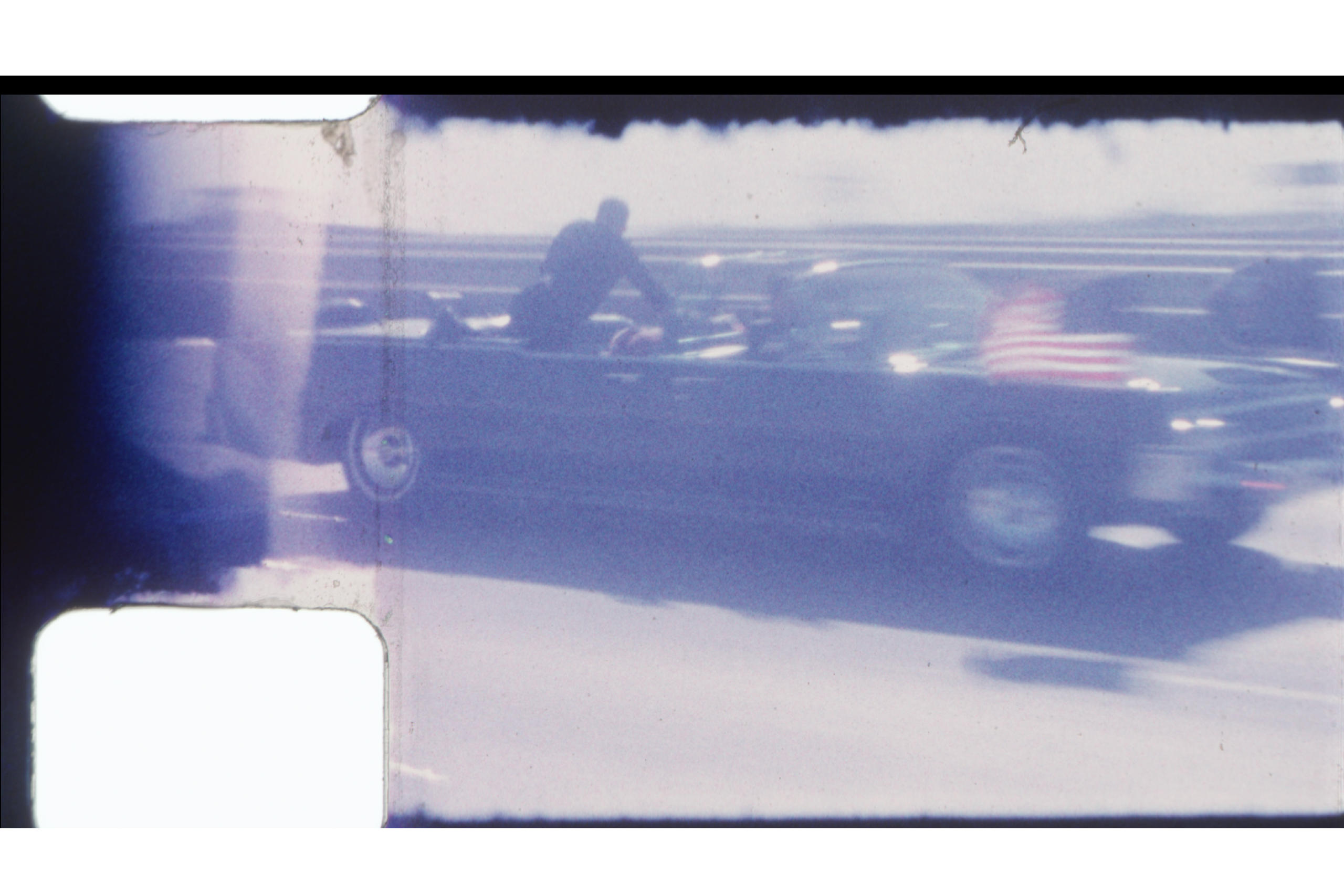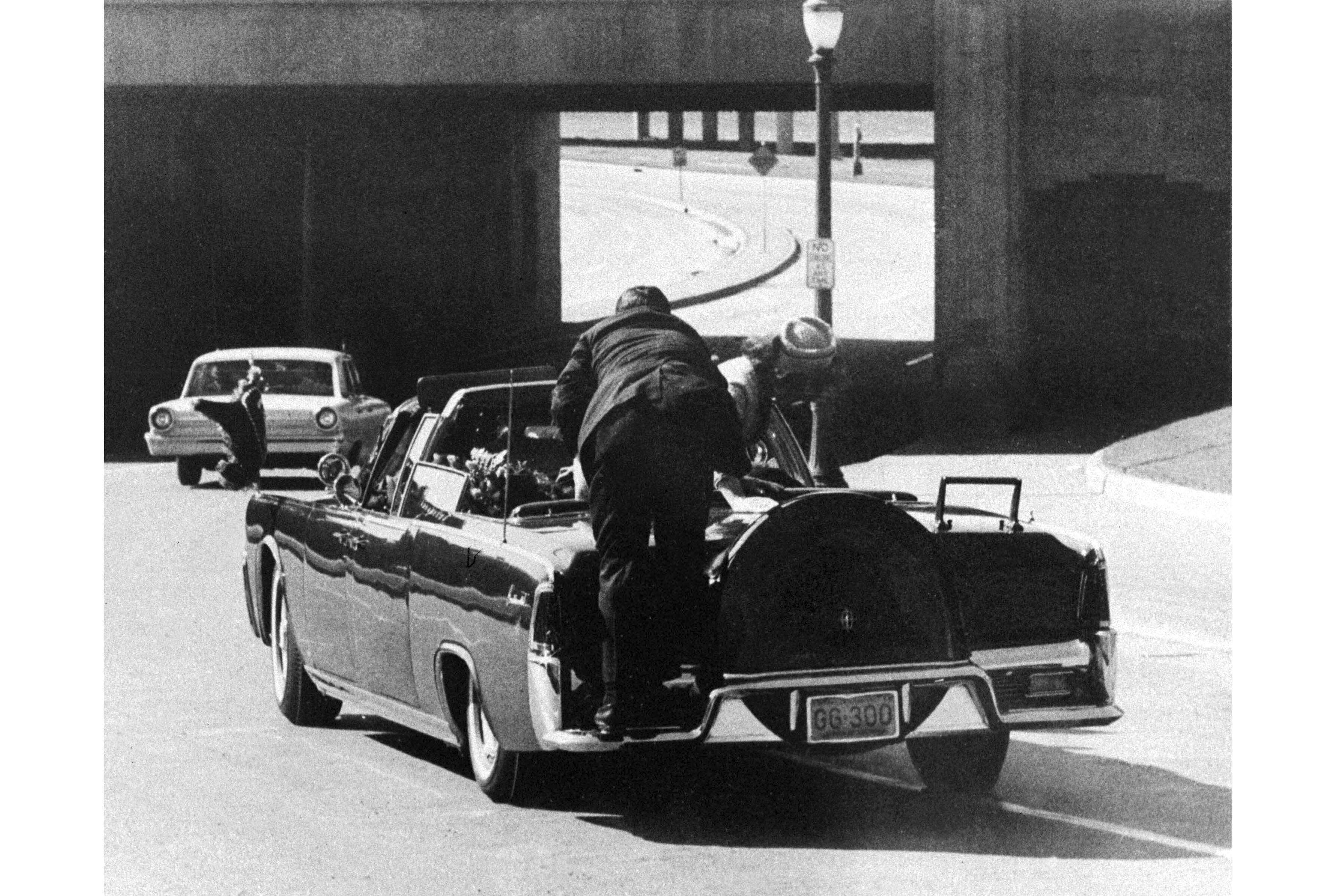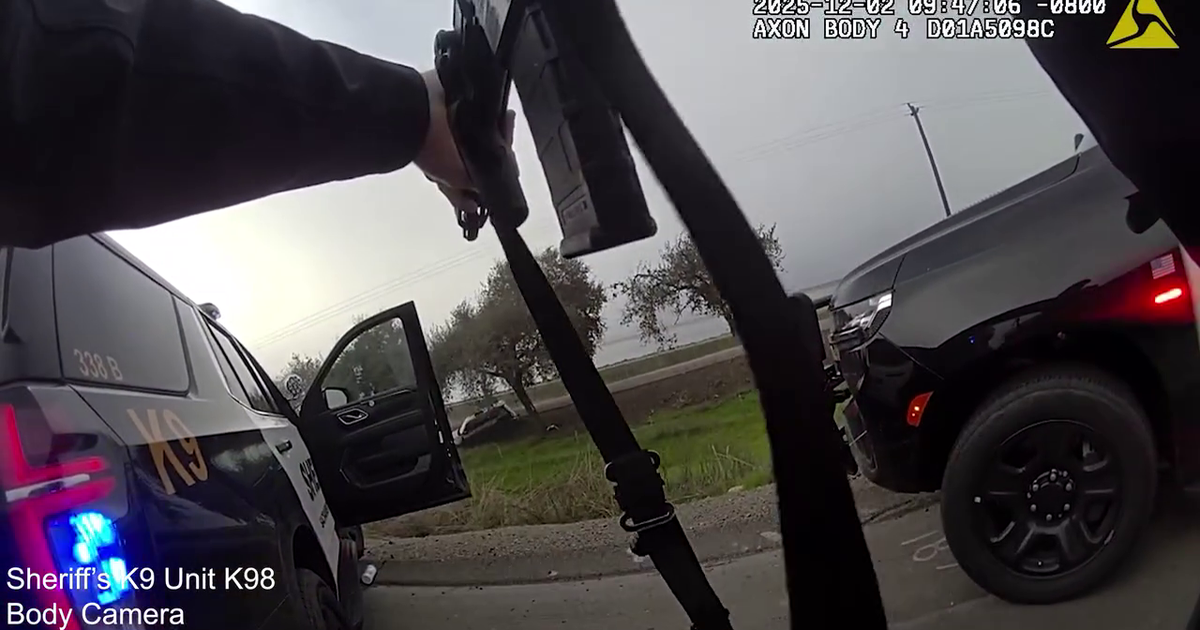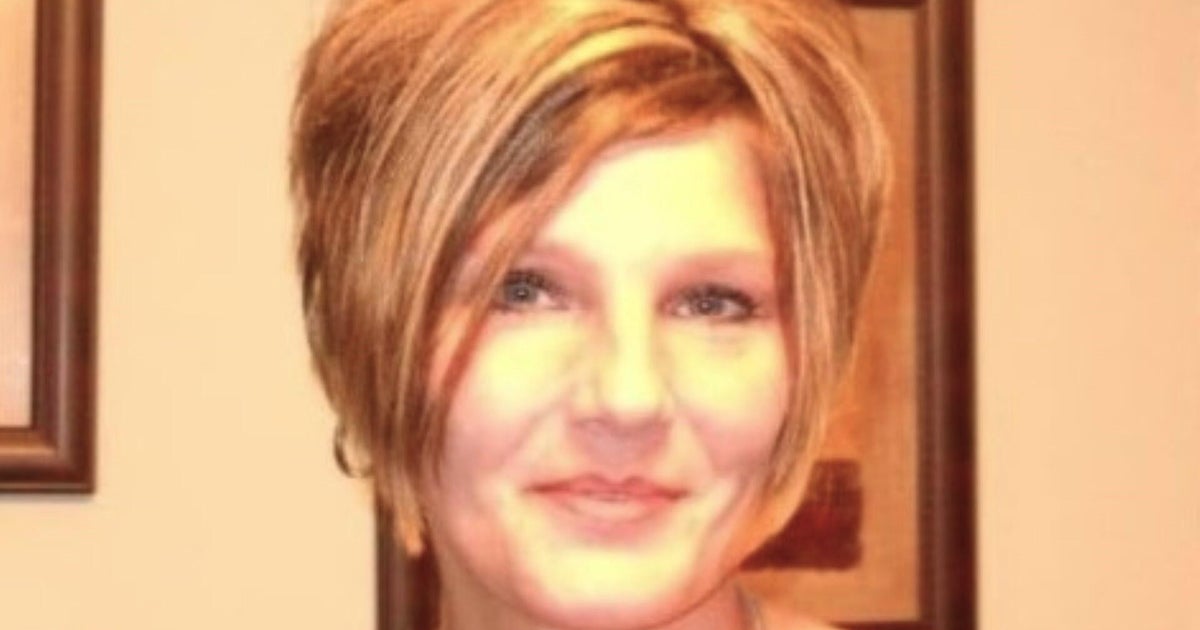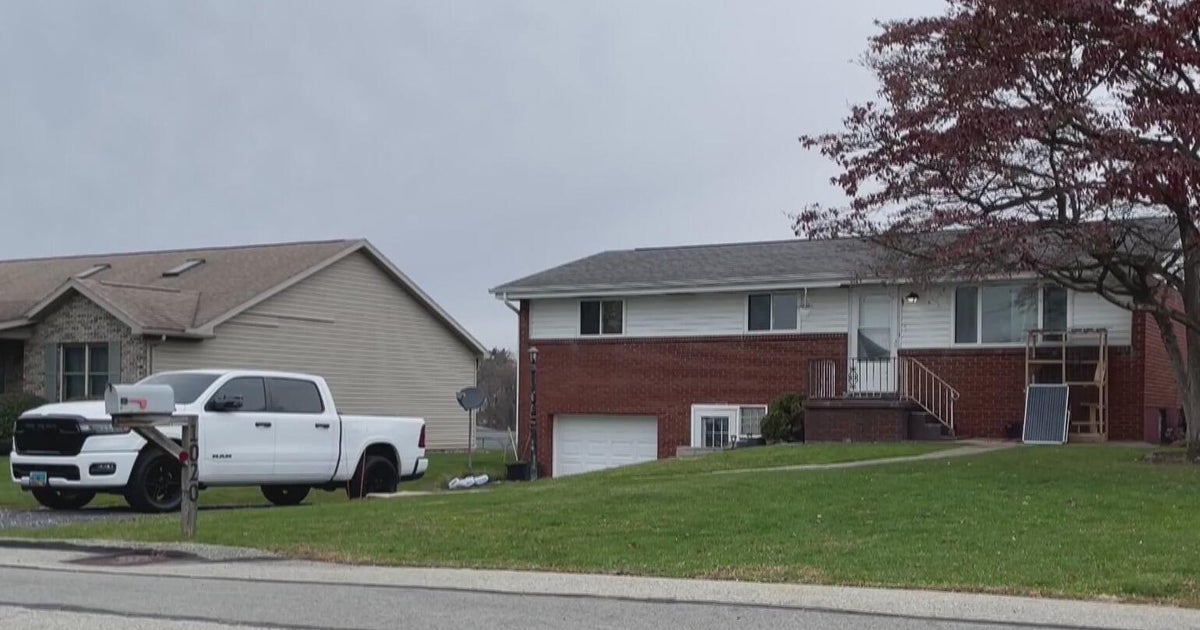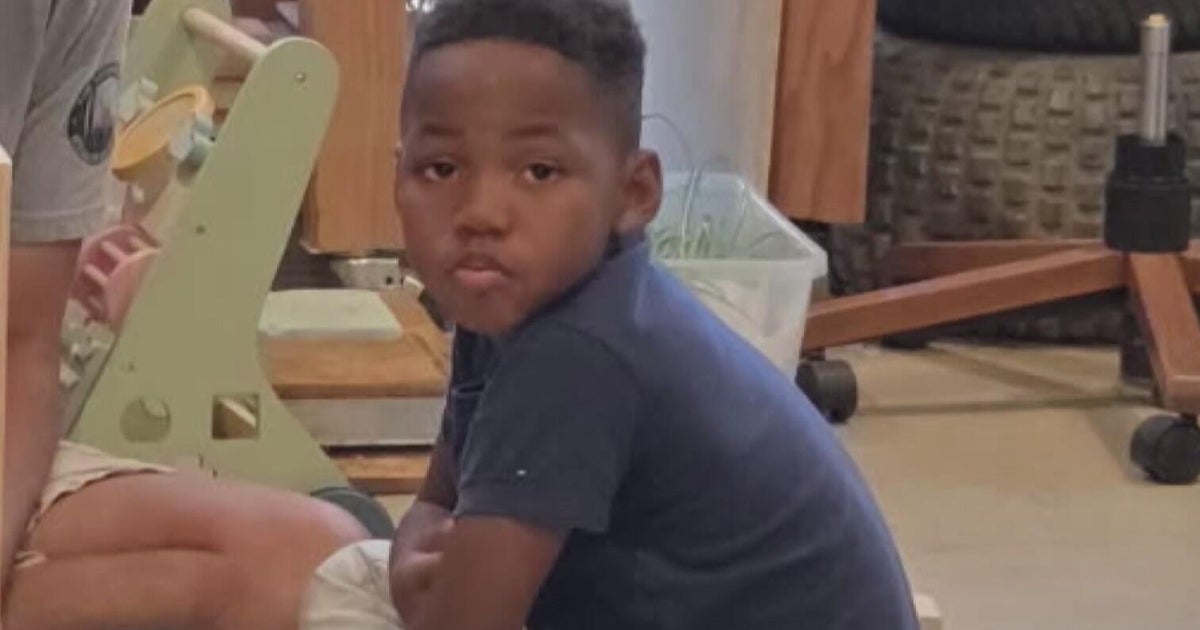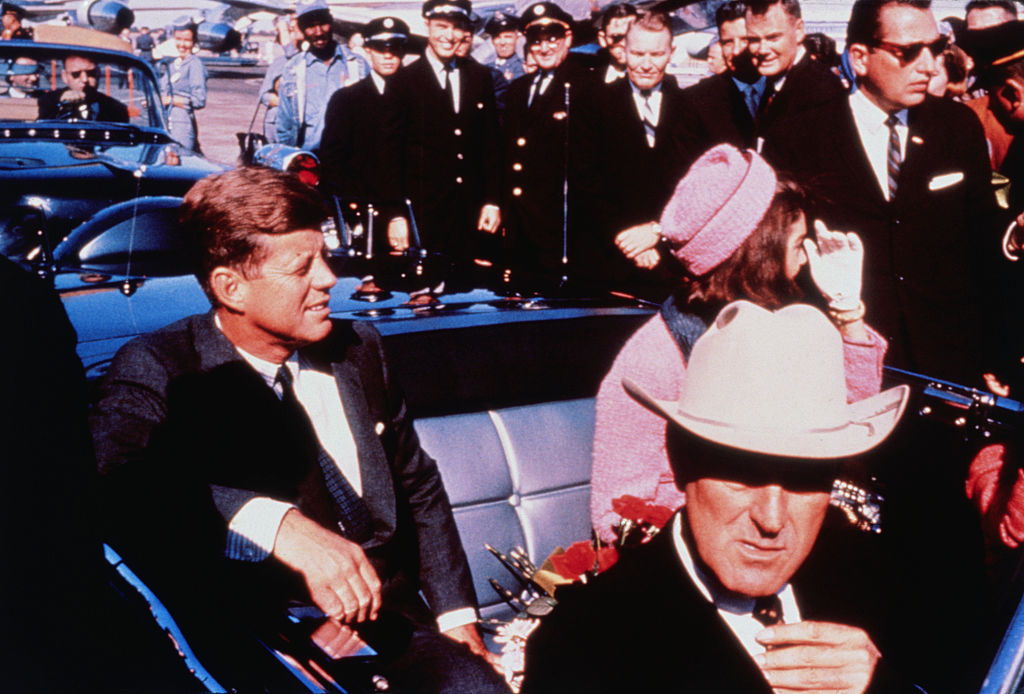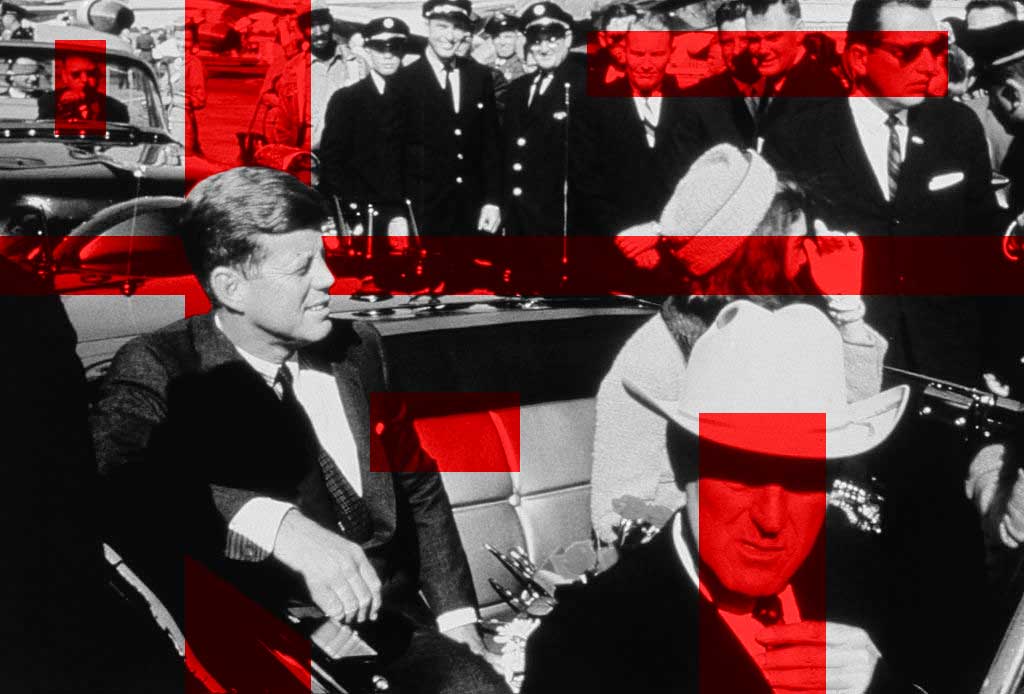Newly emerged JFK assassination video shows motorcade rushing president to hospital after he was shot
Newly emerged film footage of President John F. Kennedy's motorcade speeding down a Dallas freeway toward a hospital after he was fatally wounded will go up for auction later this month.
Experts say the find isn't necessarily surprising, even over 60 years after the assassination.
"These images, these films and photographs, a lot of times they are still out there. They are still being discovered or rediscovered in attics or garages," said Stephen Fagin, curator at The Sixth Floor Museum at Dealey Plaza, which tells the story of the assassination on Nov. 22, 1963.
RR Auction will offer up the 8 mm home film in Boston on Sept. 28. It begins with Dale Carpenter Sr. just missing the limousine carrying the president and first lady Jacqueline Kennedy but capturing other vehicles in the motorcade as it traveled down Lemmon Avenue toward downtown. The film then picks up after Kennedy has been shot, with Carpenter rolling as the motorcade roars down Interstate 35.
"This is remarkable, in color, and you can feel the 80 mph," said Bobby Livingston, executive vice president of the auction house.
The footage from I-35 — which lasts about 10 seconds — shows Secret Service Agent Clint Hill, who famously jumped onto the back of the limousine as the shots rang out, hovering in a standing position over the president and Jacqueline Kennedy, whose pink suit can be seen.
"I did not know that there were not any more shots coming," Hill said. "I had a vision that, yes, there probably were going to be more shots when I got up there as I did."
The shots had fired as the motorcade passed through Dealey Plaza in front of the Texas School Book Depository, where it was later found that assassin Lee Harvey Oswald had positioned himself from a sniper's perch on the sixth floor. The assassination itself was famously captured on film by Abraham Zapruder.
After the shots, the motorcade turned onto I-35 and sped toward Parkland Memorial Hospital, where Kennedy would be pronounced dead. It was the same route the motorcade would have taken to deliver Kennedy to his next stop, a speech at the Trade Mart.
Carpenter's grandson, James Gates, said that while it was known in his family that his grandfather had film from that day, it wasn't talked about often. So Gates said that when the film, stored along with other family films in a milk crate, was eventually passed on to him, he wasn't sure exactly what his grandfather, who died in 1991 at age 77, had captured.
Projecting it onto his bedroom wall around 2010, he was at first underwhelmed by the footage from Lemmon Avenue. But then, the footage from I-35 played out before his eyes. "That was shocking," he said.
He was especially struck by Hill's precarious position on the back of the limousine.
Soon after arriving at the hospital, Hill was on the phone with Attorney General Robert Kennedy, CBS Bay Area reported.
"He said 'Well, how bad is it?' and I didn't want to tell him that his brother was dead," Hill told the station. "So I said, 'It's as bad as it can get,' and with that, he just hung up the phone."
Around the time that Hill's book, "Mrs. Kennedy and Me," was published in 2012, Gates got in touch with Hill and his co-author, Lisa McCubbin, who became Lisa McCubbin Hill when she and Hill married in 2021.
McCubbin Hill said it was admirable that Gates was sensitive enough to want Hill to see the footage before he did anything else with it. She said that while she was familiar with Hill's description of being perched on the limousine as it sped down the interstate, "to see the footage of it actually happen ... just kind of makes your heart stop."
The auction house has released still photos of the film footage but is not publicly releasing the portion showing the motorcade racing down the interstate.
Farris Rookstool III, a historian, documentary filmmaker and former FBI analyst who has seen the film, said it shows the rush to Parkland in a more complete way than other, more fragmented film footage he's seen. He said the footage gives "a fresh look at the race to Parkland," and he hopes that after the auction, it ends up somewhere where it can be used by filmmakers.
Fagin said the assassination was such a shocking event that it was instinctive for people to keep material related to it, so there's always the possibility of new material surfacing.
He said historians had wondered for years about a man who can be seen taking photos in one of the photos from that day.
"For years we had no idea who that photographer was, where his camera was, where these images were," Fagin said.
Then, in 2002, Jay Skaggs walked into the museum with a shoebox under his arm. He was the photographer captured in the photo, and in that shoebox were 20 images from Dealey Plaza before and after the assassination, including the only known color photographs of the rifle being removed from the Texas School Book Depository building, Fagin said.
"He just handed that box to us," Fagin said.
In December 2022, the National Archives and Records Administration released a trove of 13,173 documents related to JFK's assassination, shortly after President Biden issued an executive order authorizing their disclosure while keeping thousands of other sensitive records under wraps.
At that time, the Archives said 97% of the roughly 5 million pages in its collection related to the assassination have been released to the public. But some experts said the government continues to redact or withhold important information that might cast the CIA or other agencies in a negative light.
